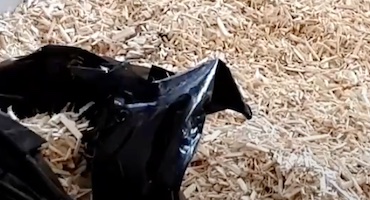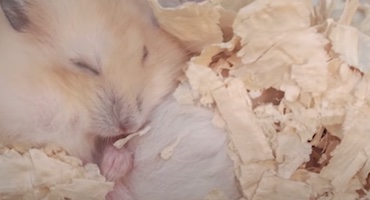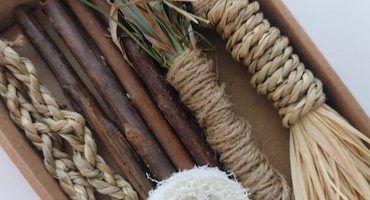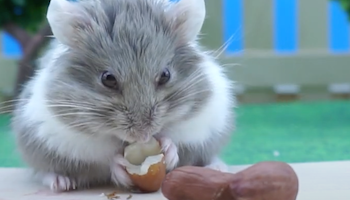Hamsters seem to be hungry all the time, always chewing and nibbling on food or even their bedding and toys! When it comes to feeding your hamster, it is still best to keep them on a healthy and balanced diet. However, the occasional treats are always a great mix in their regular foods. If you are wondering ‘can hamsters eat almonds,’ then the answer is yes! Hamsters can eat almonds.
However, there are two varieties of almonds; the bitter almonds and the sweet almonds. Bitter almonds are entirely toxic for your little hamsters and can be fatal for them, so be extremely careful when you are feeding them almonds. Stick to only pure, organic sweet almonds for your little pets. Here is everything you need to know about feeding almonds to your hamsters.
Syrian hamsters are the more enormous variety of hamsters which can digest small amounts of fat. Since almonds are quite high in fat, you can feed them to your Syrian hamsters, but in moderation. Give your Syrian hamsters one piece of almond twice a week only.
Campbell’s dwarf hamsters are a smaller species of hamsters, about half the size of Syrian hamsters. While these hamsters simply love to munch on tasty little treats, you should only feed them almonds in moderation, due to the high-fat content in them. Give your Campbell’s dwarf hamsters just half a piece of almond once or twice a week only.
Winter whites dwarf hamsters are also a small species of hamsters which are very cute and playful. If you want to feed almonds to your winter white dwarf hamsters, give them just half a piece of sweet almond once or twice a week, and not more than that. These dwarf hamsters are very prone to developing diabetes and obesity, and the high-fat content in almonds put them at this risk.
Robowski hamsters are another species of more giant hamsters, just like Syrian hamsters. These hamsters can also digest slightly more massive quantities of food, and even a high-fat diet like almonds. Give your Robowski hamsters one piece of sweet almond just once twice a week.
Finally, Chinese hamsters are another species of dwarf hamsters. Obviously, as much as these hamsters might love to eat, you cannot overfeed them fatty food like almonds. Stick to just half a piece of sweet almond once or twice a week for your little Chinese hamsters.
Wild hamsters species exist in many places all around the world. Here, these hamsters are scavengers and have an omnivorous diet, which means that they eat both plants as well as animals. Wild hamsters survive on a diet of leaves, plants, vegetables, wild fruits and berries, seeds, grains, nuts, and even small insects, frogs and lizards.
Your domestic hamsters can have a far more healthy and balanced diet. You should keep your pet hamsters on a regular diet of exceptional hamster food which you will find in pet stores. In addition to that, you can also give them the occasional treats of nuts, seeds, small pieces of fruits, vegetables, and leaves. Of course, you should make sure that these treats are safe for your little hamsters and give them these only in moderation.
What are the nutritional benefits of feeding almonds to your hamsters?
If you feed almonds to your hamsters in moderation, sticking to only the sweet almonds and avoiding bitter almonds, they can be quite nutritious for your little pets.
Almonds contain antioxidants, Vitamin E, manganese, and magnesium.
The antioxidant properties of almonds are excellent for destroying all the free radicals which your hamster’s body creates. These free radicals can cause a lot of harm to the healthy cells in their body, and antioxidants destroy them, thus, making your hamsters healthier.
Vitamin E is excellent for maintaining good skin, fur, and eye health of your little hamsters. In fact, regular intake of Vitamin E can even support the immune system of your hamsters, making them stronger and healthier, and also help in preventing coronary disease and types of cancers.
Manganese is high for improving the bone health of your little hamsters. It also helps in destroying the free radicals as it is a good antioxidant.
Magnesium is vital for proper bone formation and overall bone health of your hamsters. It is also suitable for preventing osteoporosis as well as diabetes in your little hamsters.
What are the risks of feeding almonds to your hamsters?
While almonds have great nutritional benefits, too many almonds can be very risky and toxic for your little hamsters, due to the high-fat content in them.
It is also essential for you to check particularly for bitter almonds, as these can be fatal for your little hamsters. Give your hamsters only the perfectly regular shaped sweet almonds which do not have salt and any extra additives. The other additions can be quite dangerous for your hamster’s health.
You should also avoid feeding the skin of the almonds to your little hamsters, as they contain toxic elements which are very dangerous for them.
Can hamsters eat dried almonds?
Yes, you can feed dried almonds to your little hamsters. However, give them only the unsalted variety, and give your Syrian and Roboswki hamsters just one dry almond at a time, and your dwarf hamsters just half a piece of dried almond.
Can hamsters eat almond shells and skin?
No, you should absolutely not feed the almond shells and skins to your hamsters. Remove the shells first and soak the almonds for 15 minutes in water. Then, peel of the almond skins and only then feed the almonds to your hamsters.
How many almonds can you feed your hamsters?
As for your Syrian and Robowski hamsters, feed them just one peeled, unsalted, raw and organic sweet almond twice a week.
As for your dwarf hamsters, give them one half of a peeled and unsalted sweet organic almond just once or twice a week.
Conclusion
Be very careful about the variety of almonds you are feeding your hamsters, as even one bitter almond can be very dangerous for them. Give them these little treats in moderation and keep your hamsters on a healthy, balanced diet of individual hamsters feed you will find in pet stores.
Share
Related Posts
There are around 24 species of hamsters in the world. However, only about 5 of these species are [...]
Hamsters love to chew on all kinds of foods, however, as a caring pet owner, you should always [...]
Hamsters are fun little creatures and extremely playful as pets. Having a small hamster pet can be incredibly [...]




